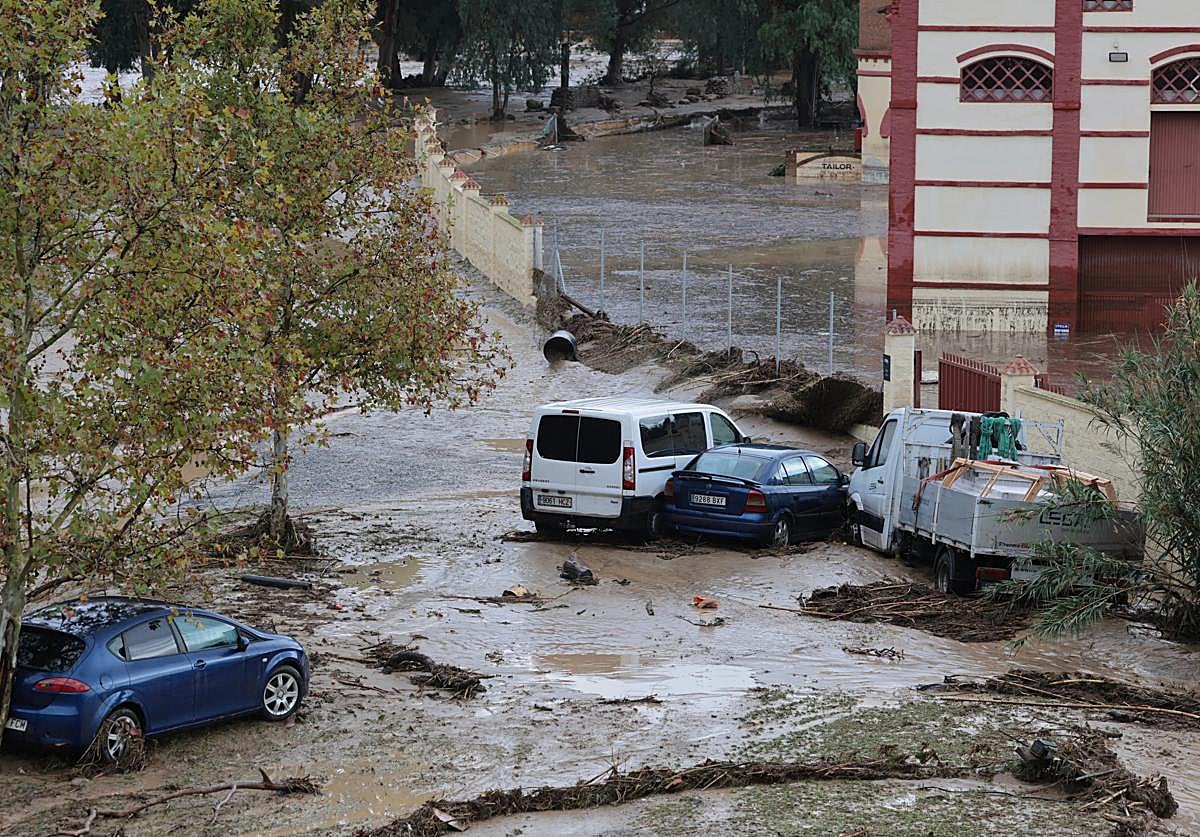Civil engineers call for more investment to mitigate effects of heavy rains in Andalucía
They point out that infrastructures "have worked well" in the region, but call for more prevention measures, while pointing out that "zero risk" does not exist with weather events of this nature
Europa Press
Malaga
Tuesday, 5 November 2024, 12:19
The association of civil engineers in Andalucía, Ceuta and Melilla has said that the catastrophe and large loss of life resulting from last week's intense storms in the Valencia region of Spain should be a time to reflect on the need to improve the prevention and management of disasters in order to "minimise risks", as well as to respect the guidelines set out in the flood risk management plan, mainly in the occupation of flood zones. It has also called for increased investment in infrastructures that reduce the impact of climatic phenomena, including providing alternative and preventive solutions in areas where floodplains have been built on.
The organisation pointed out that despite the tragic situations of many families, "the infrastructures in the region have worked well, have significantly mitigated the effects of the high rainfall in recent days as it passed through Andalucía and, in many cases, have avoided major disasters".
This tragic event has underlined, among other things, the crucial importance of the water infrastructures in use, according to the institution, which specifies that "the previous level of drought in the basin has been, in this case, positive, because it has offered sufficient capacity to retain water without any release of water and all the rainfall has been stored, without increasing the flows of the rivers that arrive from the basin not regulated by the dams".
For the organisation, "the causes of the serious consequences of these rains in each area should be studied objectively, but without forgetting that we have faced an exceptional episode, which has been considered the worst Dana of the century in Spain".
Flood management plans
"It is important to remember that zero risk does not exist in the face of weather events of this nature, but as engineers we aspire to reduce it by improving early warning systems, the transmission of knowledge to society living in flood-prone areas, decision support and by implementing infrastructure that is necessary for risk mitigation."
It stressed that the implementation of flood risk management plans aimed at reducing flood risk is an imperative of the 2007 European Framework Directive on this issue. Real-time hydrological information and forecasting using appropriate models and automatic systems, as well as risk maps accessible to the public, play a key role in minimising the impact of these events.
For the engineering organisation, "this type of event is a reminder of the need to go a step further to effectively reduce the risk and impact of future floods. The technical solutions needed for this are already planned and backed up by comprehensive studies; however, their realisation depends on agreements and political will, as well as adequate funding to make them a reality."
"The budgets of the administrations should reflect an extraordinary permanent item for the conservation and cleaning of watercourses and land adjacent to flood zones, especially in areas close to towns. An important issue is that this conservation, maintenance and cleaning of risk areas are under the control or management of several administrations, up to five in some places, so that the common work and coordination to pay for these actions and implement them should be a matter of concern," the civil engineers added.
